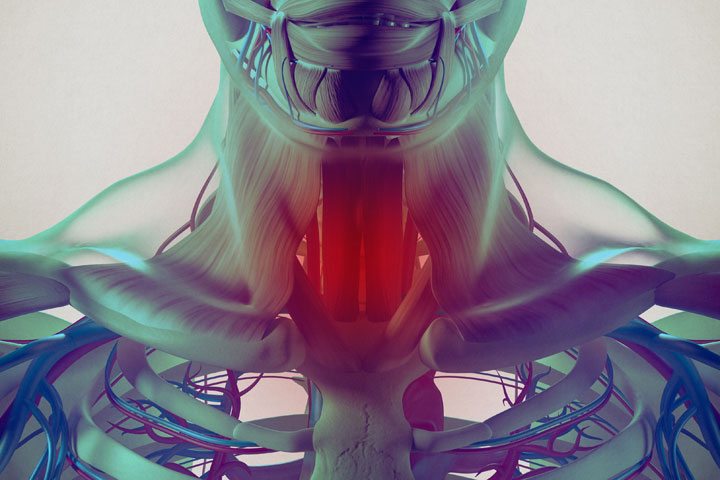The medical term for difficulty with the mechanism and process of swallowing is dysphagia. Dysphagia is a common concomitant of aging, but it also occurs in people of any age who have nerve or muscle problems. The condition is so common that several national support and education foundations are devoted to it. One of them, the National Foundation of Swallowing Disorders, reports that some degree of swallowing difficulty occurs in:
- More than 20{d0e74b8a3596e4326b45924d39792f257a1f9983beed4201831d386befd3d18e} of people over 50 years old, and
- Most people over age 80.
These figures are important because, according to the U.S. Census Bureau, in 2010, people age 65 and over accounted for 13{d0e74b8a3596e4326b45924d39792f257a1f9983beed4201831d386befd3d18e} of the population—and that segment is predicted to grow to more than 20{d0e74b8a3596e4326b45924d39792f257a1f9983beed4201831d386befd3d18e} of the population by 2030. As the population of older people grows, so will the prevalence of dysphasia.
Components of Swallowing
Swallowing is a more complex activity than most people imagine. In fact, it’s one of the most complicated tasks the body’s nervous system performs. According to Medical News Today, several physical abilities are required to swallow; when any one or more of them goes wrong, dysphagia may result.
The steps in healthy swallowing include:
- The senses of sight, smell, and taste help to create saliva, which makes chewing easier because it softens food and “greases the wheels” of the mouth.
- Chewing turns food into a soft mass, or a “bolus.” The tongue then pushes it to the back of the mouth.
- The act of swallowing then becomes automatic, as the larynx closes so that solids or liquids do not enter the lungs or windpipe. The gulping action pushes the food into the esophagus, which has muscular walls that then force the bolus down to the stomach.
Causes of Swallowing Problems
Swallowing dysfunction that occurs during the normal aging process is often made worse by accidents and conditions that older people may be more likely to have just because of their advancing ages.
Complicating conditions commonly include:
Cancer. Not only can cancer itself cause or contribute to dysphagia, but so can radiation treatments often prescribed to combat the disease. This is especially true when the radiation is concentrated on the neck or head, as it may cause swelling and the formation of scar tissue. The scar tissue, in turn, can narrow the throat or affect muscles and prevent normal swallowing.
Neurological injury or disease. Impairments caused by a stroke or brain tumor, for example, may damage the portions of the brain that control swallowing. And disorders common among older people—including Alzheimer’s Disease, Parkinson’s Disease, amyotrophic lateral sclerosis (ALS), multiple sclerosis, and Huntington Disease also can limit the brain functions needed for efficient swallowing.
Dental problems. Many older adults develop problems with their teeth or wear dentures that are loose or otherwise ill-fitting. Both conditions may prevent them from from fully chewing food, which may in turn cause swallowing problems.
Medications. According to the American Academy of Otolaryngology-Head and Neck Surgery, medications liberally prescribed for older patients may also cause swallowing problems. Among the common culprits are:
- Nitrates
- Anticholinergic agents, often found in anti-depressants and allergy medications
- Calcium tablets
- Calcium channel blockers
- Aspirin
- Iron tablets
- Vitamin C
- Antipsychotic medications
- Tetracycline
Treatment for Dysphagia
Left undiagnosed or untreated, dysphagia can cause weight loss, malnutrition, frailty, and pneumonia—among other conditions. But there are several methods for treating it. Some are work-arounds to prevent the condition from worsening; others recognize that the normal swallowing ability has been essentially lost. The most fitting treatment can be coordinated by a team of medical providers, or orchestrated mainly by an otolaryngologist—a specialist who focuses on ear, nose, and throat conditions.
Lifestyle changes, such as reducing weight and stress or elevating the head during sleep help relieve some swallowing difficulties.
Also helpful are dietary changes. Bland foods eaten in smaller, more frequent meals will often ease dysphagia. If this route is taken, it should not be “do-it-yourself”; instead, a registered dietician should be consulted and the diet should be monitored by a physician. For some individuals, food thickeners are also beneficial.
Depending on the specific type of swallowing disorder, medications that slow digestion, reduce stomach acid production, and relax muscles may help. If the dysphagia is caused or accompanied by narrowing in the throat or esophagus, surgery to release or dilate those openings may be indicated.
Swallowing therapy from a speech language pathologist can help some individuals with dysphagia learn strategies to improve muscle strength and control. Such therapists can be found in hospitals, rehabilitation centers, and at universities. In fact, many universities use graduate-level students to work with patients having problems like this. There is often a sliding scale of fees based on ability to pay.
Finally, a feeding tube can be used if nothing else is feasible.
